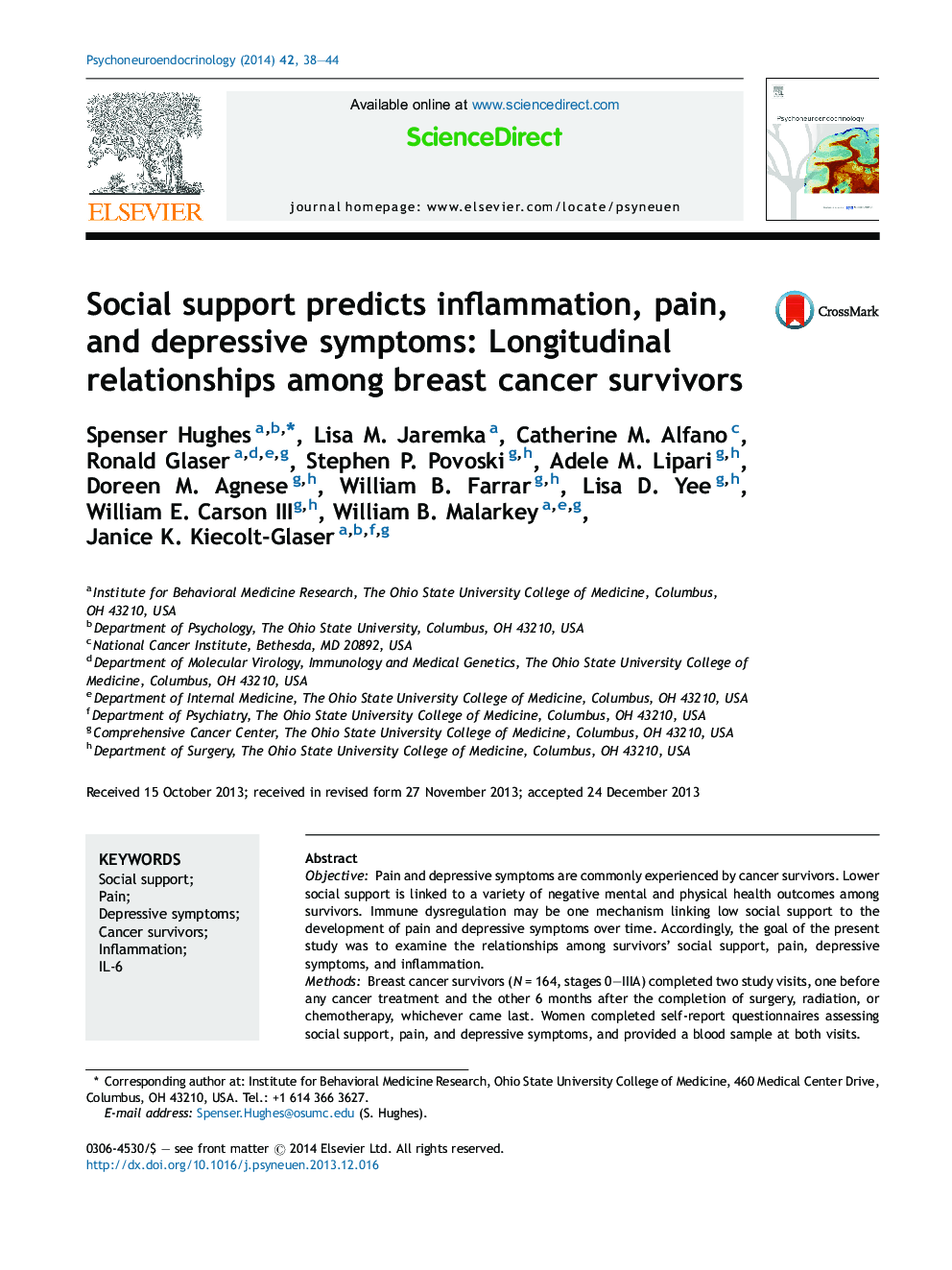| Article ID | Journal | Published Year | Pages | File Type |
|---|---|---|---|---|
| 336393 | Psychoneuroendocrinology | 2014 | 7 Pages |
ObjectivePain and depressive symptoms are commonly experienced by cancer survivors. Lower social support is linked to a variety of negative mental and physical health outcomes among survivors. Immune dysregulation may be one mechanism linking low social support to the development of pain and depressive symptoms over time. Accordingly, the goal of the present study was to examine the relationships among survivors’ social support, pain, depressive symptoms, and inflammation.MethodsBreast cancer survivors (N = 164, stages 0–IIIA) completed two study visits, one before any cancer treatment and the other 6 months after the completion of surgery, radiation, or chemotherapy, whichever came last. Women completed self-report questionnaires assessing social support, pain, and depressive symptoms, and provided a blood sample at both visits.ResultsSurvivors with lower social support prior to treatment experienced higher levels of pain and depressive symptoms over time than their more socially supported counterparts. Furthermore, women with lower pretreatment social support had higher levels of IL-6 over time, and these elevations in IL-6 predicted marginally larger increases in depressive symptoms.ConclusionsThe results of this study suggest that social support at the time of diagnosis predicts the post-treatment development of pain, depressive symptoms, and inflammation. Consequently, early interventions targeting survivors’ social networks could improve quality of life during survivorship.
